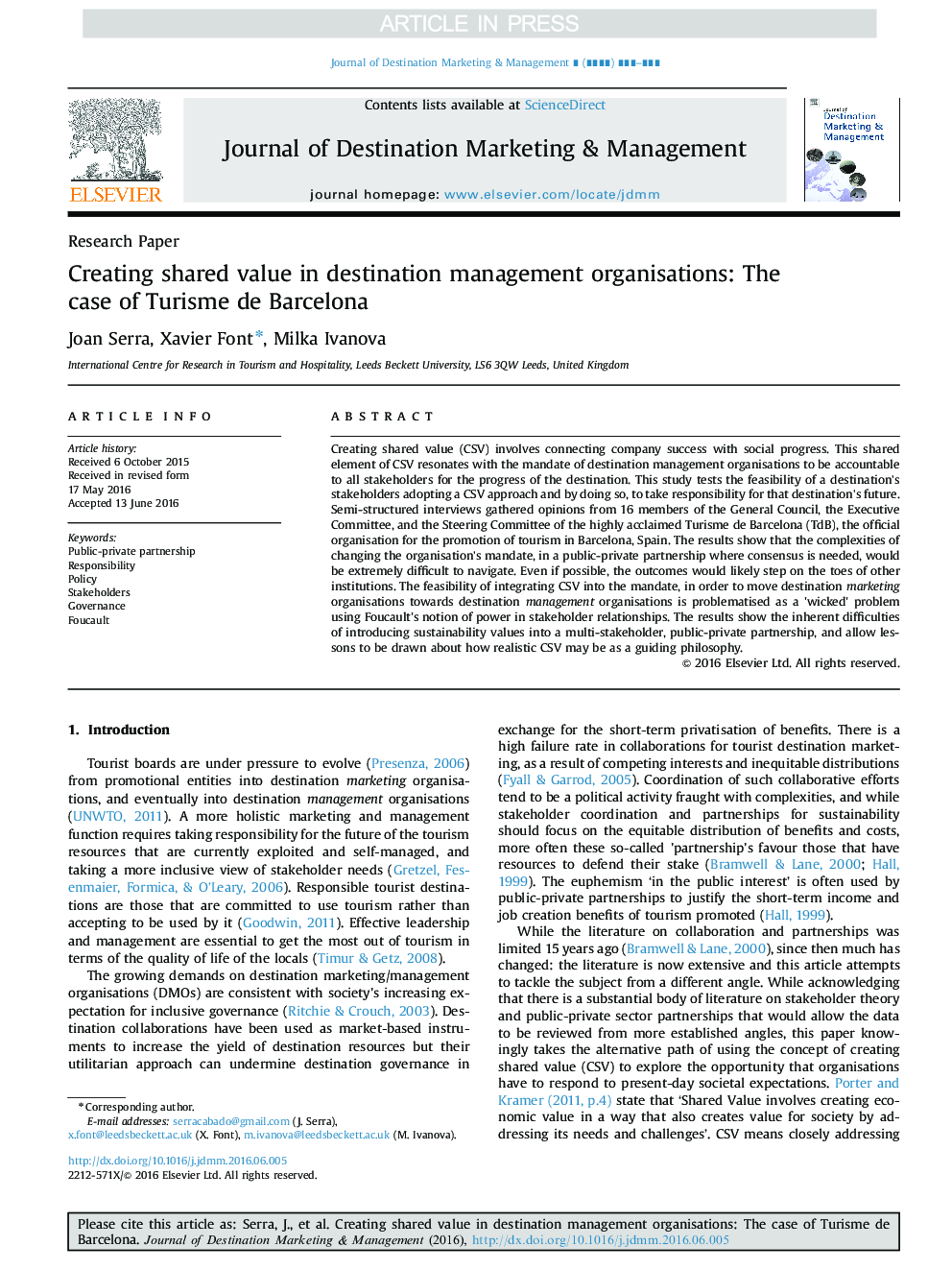| Article ID | Journal | Published Year | Pages | File Type |
|---|---|---|---|---|
| 7419812 | Journal of Destination Marketing & Management | 2017 | 11 Pages |
Abstract
Creating shared value (CSV) involves connecting company success with social progress. This shared element of CSV resonates with the mandate of destination management organisations to be accountable to all stakeholders for the progress of the destination. This study tests the feasibility of a destination's stakeholders adopting a CSV approach and by doing so, to take responsibility for that destination's future. Semi-structured interviews gathered opinions from 16 members of the General Council, the Executive Committee, and the Steering Committee of the highly acclaimed Turisme de Barcelona (TdB), the official organisation for the promotion of tourism in Barcelona, Spain. The results show that the complexities of changing the organisation's mandate, in a public-private partnership where consensus is needed, would be extremely difficult to navigate. Even if possible, the outcomes would likely step on the toes of other institutions. The feasibility of integrating CSV into the mandate, in order to move destination marketing organisations towards destination management organisations is problematised as a 'wicked' problem using Foucault's notion of power in stakeholder relationships. The results show the inherent difficulties of introducing sustainability values into a multi-stakeholder, public-private partnership, and allow lessons to be drawn about how realistic CSV may be as a guiding philosophy.
Related Topics
Social Sciences and Humanities
Business, Management and Accounting
Business, Management and Accounting (General)
Authors
Joan Serra, Xavier Font, Milka Ivanova,
